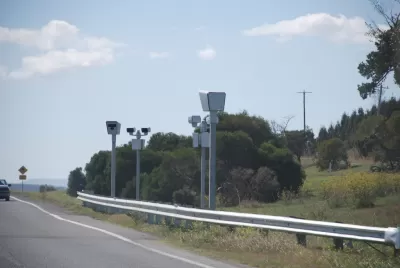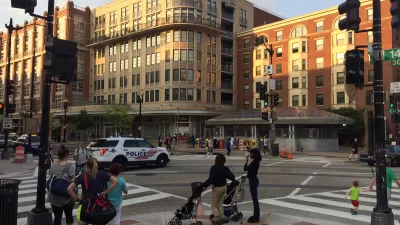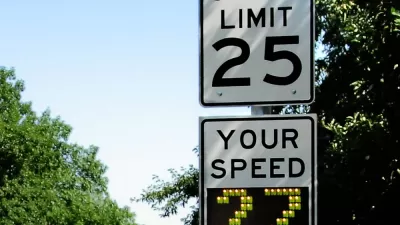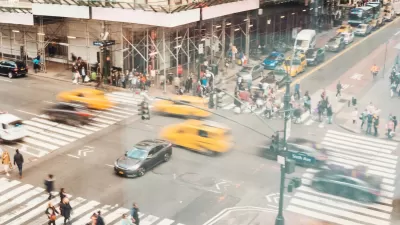Data from Chicago reaffirms the efficacy of speed cameras at reducing traffic fatalities and serious injuries.

A recent analysis of Chicago's speed camera program shows that, while the number of crashes increased between the study periods of 2012-2013 and 2018-2019, "the increases at cam locations were significantly lower than those experienced throughout the city as a whole." According to John Greenfield, this points to the effectiveness of speed cameras in changing driver behavior and reducing fatal crashes and injuries.
The study showed that "Fatal or serious injury crashes increased only 2 percent near speed cameras between 2012-13 and 2018-19, as compared to a 21 percent increase citywide," while overall crash totals increased by just one percent compared to 25 percent citywide. Greenfield concludes that, based on the data, "The cameras are doing their job by keeping serious and fatal crash numbers in the safety zones relatively low compared to those in other parts of the city, preventing life-changing injuries and deaths."
Despite this study and similar evidence from other places, speed cameras, also known as automated traffic enforcement, have encountered opposition from lawmakers who cite concerns about corruption, unequal enforcement, and civil rights violations. Between 2012 and 2016, the number of red-light cameras fell by a fifth, even as red light runners killed more people than in previous years.
FULL STORY: Bakery-fresh CDOT study reaffirms speed cameras are saving lives

Alabama: Trump Terminates Settlements for Black Communities Harmed By Raw Sewage
Trump deemed the landmark civil rights agreement “illegal DEI and environmental justice policy.”

Study: Maui’s Plan to Convert Vacation Rentals to Long-Term Housing Could Cause Nearly $1 Billion Economic Loss
The plan would reduce visitor accommodation by 25% resulting in 1,900 jobs lost.

Planetizen Federal Action Tracker
A weekly monitor of how Trump’s orders and actions are impacting planners and planning in America.

Waymo Gets Permission to Map SF’s Market Street
If allowed to operate on the traffic-restricted street, Waymo’s autonomous taxis would have a leg up over ride-hailing competitors — and counter the city’s efforts to grow bike and pedestrian on the thoroughfare.

Parklet Symposium Highlights the Success of Shared Spaces
Parklets got a boost during the Covid-19 pandemic, when the concept was translated to outdoor dining programs that offered restaurants a lifeline during the shutdown.

Federal Homelessness Agency Places Entire Staff on Leave
The U.S. Interagency Council on Homelessness is the only federal agency dedicated to preventing and ending homelessness.
Urban Design for Planners 1: Software Tools
This six-course series explores essential urban design concepts using open source software and equips planners with the tools they need to participate fully in the urban design process.
Planning for Universal Design
Learn the tools for implementing Universal Design in planning regulations.
Caltrans
Smith Gee Studio
Institute for Housing and Urban Development Studies (IHS)
City of Grandview
Harvard GSD Executive Education
Toledo-Lucas County Plan Commissions
Salt Lake City
NYU Wagner Graduate School of Public Service





























